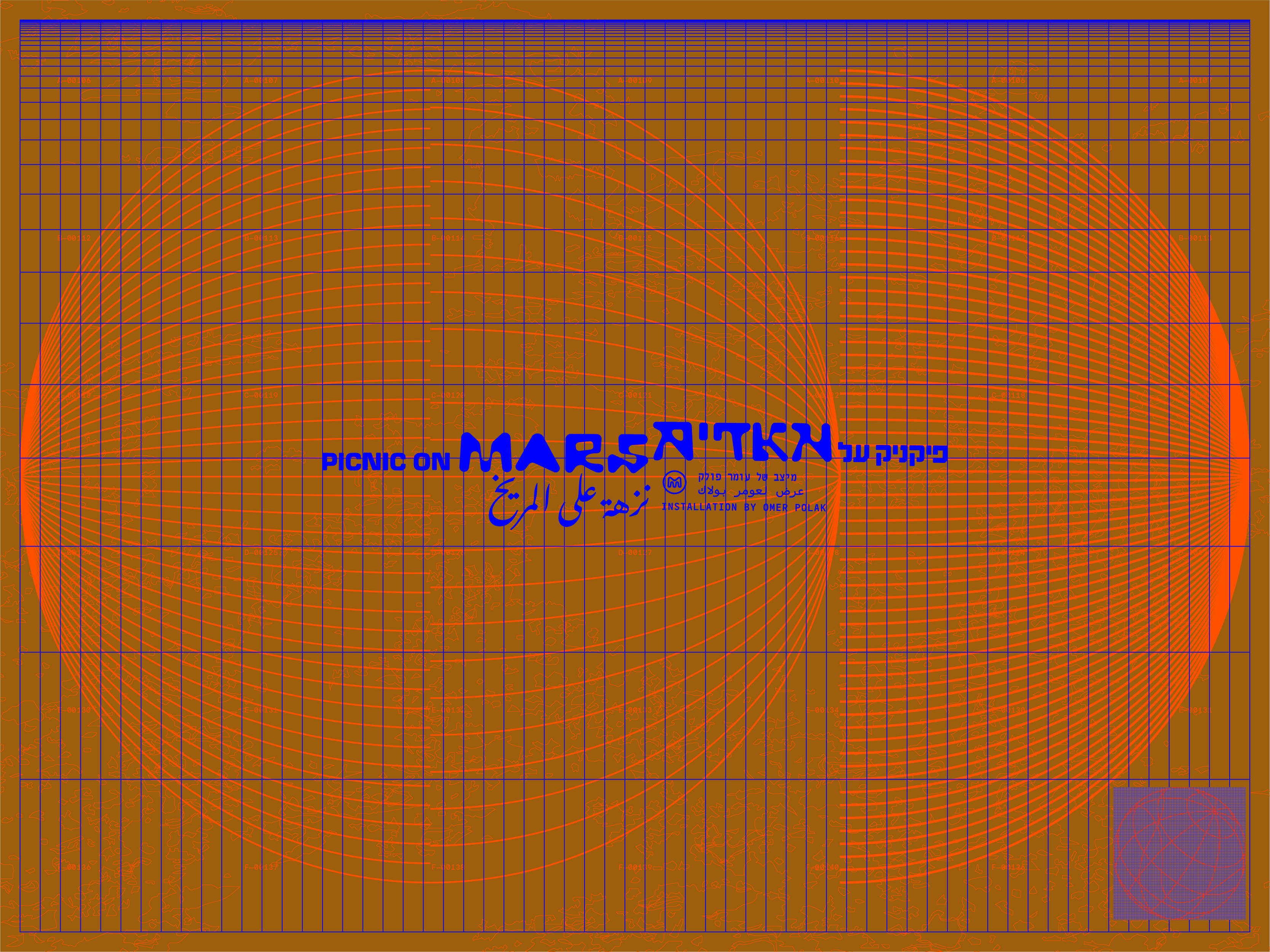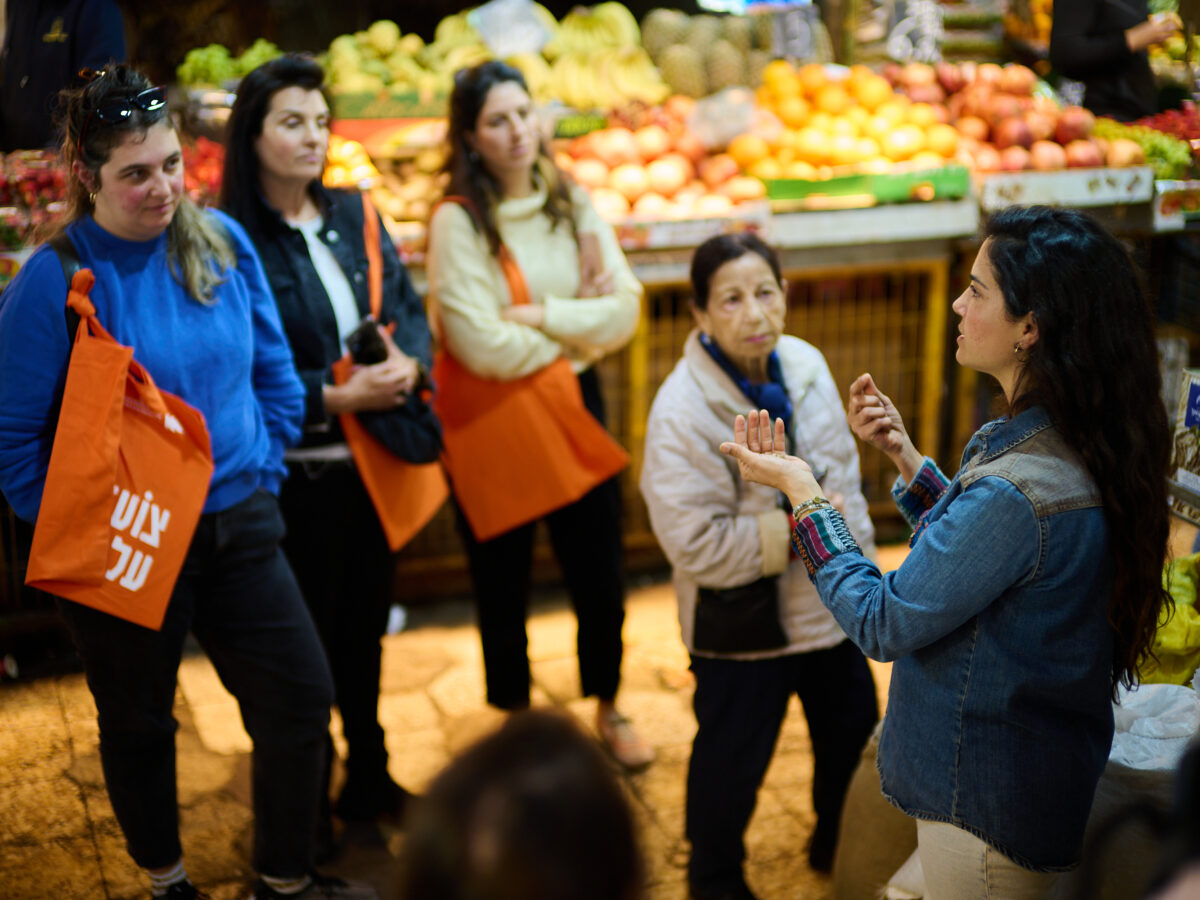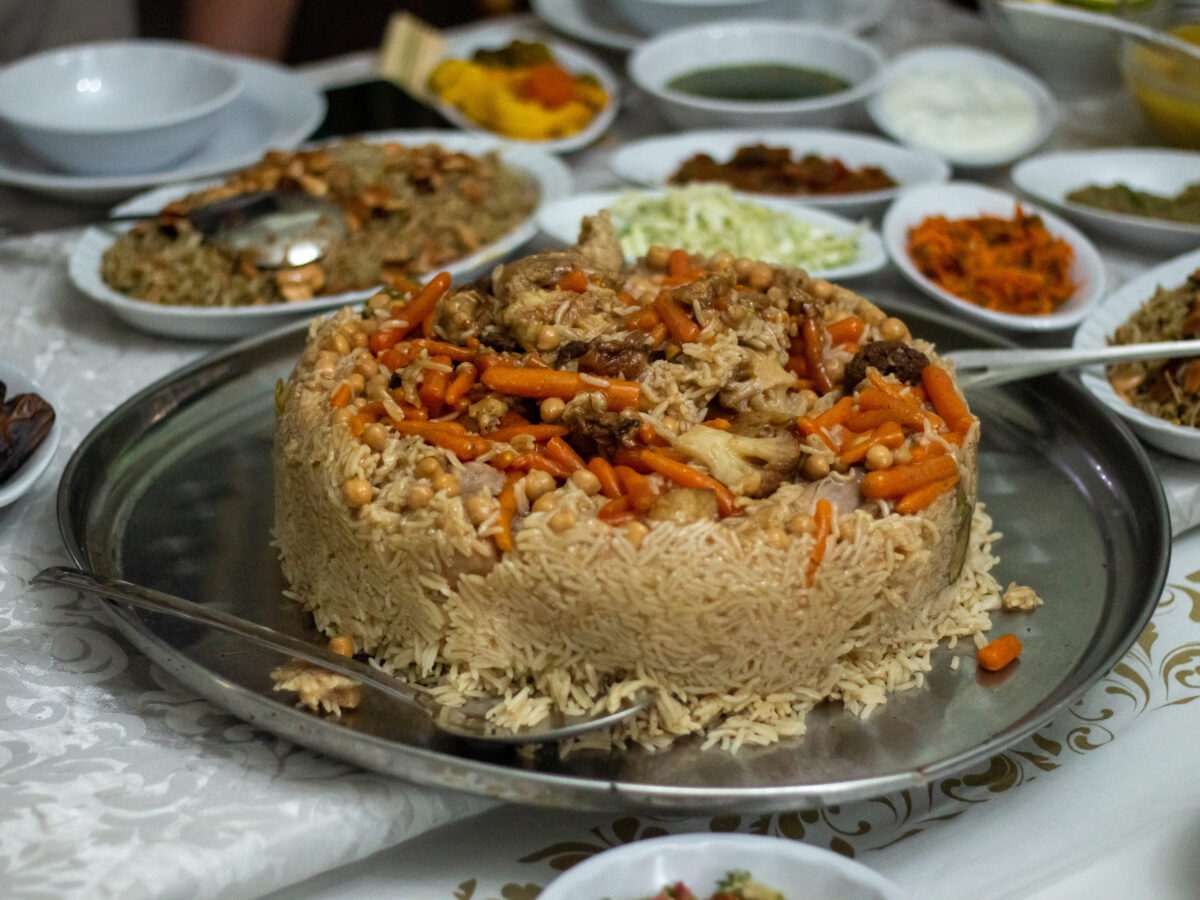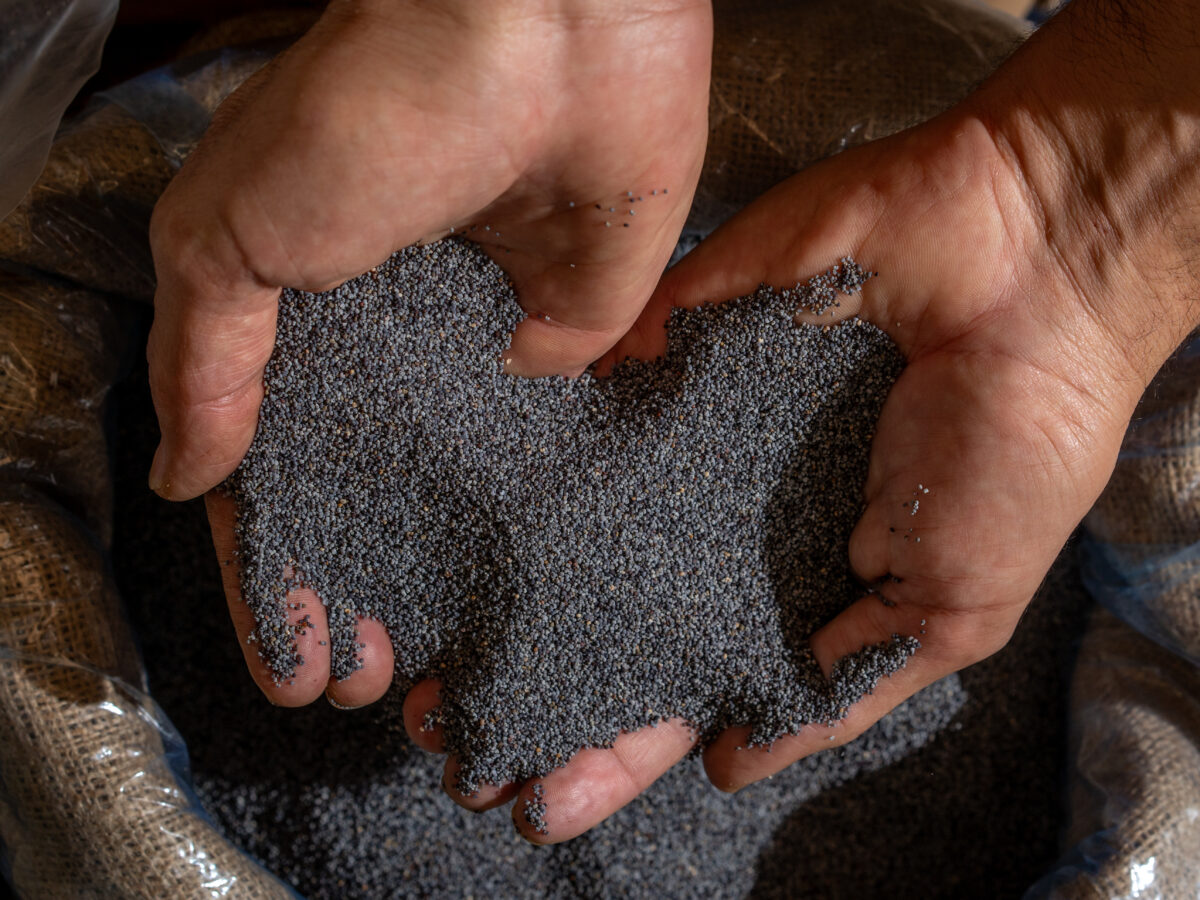“Picnic on Mars” is a provocative installation in the Asif gallery by artist and designer Omer Polak that asks us to consider what foods are most important to us and how the decisions we make about what we eat today will impact our future. For more details, check out a Q&A with Polak on the Asif Journal.
The Installation
“Picnic on Mars” is a celestial garden that welcomes visitors to a lush landscape—both organic and synthetic—that functions as a place to escape, an area of observation and contemplation that points us towards an undefined future. Video screens, motion sensors, natural vegetation, and semi-transparent construction provides the threshold to an imaginary world where escapism is an essential part of shaping the future in which we want to live.
Why a Picnic?
“It’s perfectly true that under the circumstances of a picnic food tastes better. One relishes the fresh air and the escape from crowds, and delights in being simply oneself.” —James Beard, Delights & Prejudices
A picnic provides the opportunity to escape our daily lives, leave behind our current reality, and in so doing also takes us out of the mundanity of our daily meals. A picnic affords a new perspective on the food we eat, what’s important to us, and what our diet says about who we are. Because we usually picnic in places not designed for dining, we must bring everything we need with us, not just the food, but also the accouterments. Picnics require us to be intentional about the ritual of eating. They ask us to consider every aspect about what makes a meal, including who’s invited. Because we can only carry so much, especially if we are heading to Mars, picnics force us to make choices. Picnics are fun and frivolous, an escape from reality, but preparing for the perfect picnic requires some serious thought.
Why Mars?
If recent rockets and rovers are any indication, Mars has become the moment’s “planet of interest.” Mars is also a symbol of the future, a new frontier, a place, both real and imagined, that we can go to when the challenges of life on earth necessitate an alternate existence. Since humans began thinking about outer space, Mars has loomed large. With a challenging physical environment and atmosphere, a picnic on Mars requires us to further home in on what is important to us, both as picnickers and as people. In this strange place, this future, what will comfort and nourish us? Which rituals will we maintain? What sorts of skills and technology will we need to survive? Who will thrive? As a stand-in for the future, Mars is the perfect destination for a picnic that takes us out of our current reality so we can assess what we’ve got and imagine the future we want to create.
Eating Today for Tomorrow
The decisions we make about the food we eat convey a lot about who we are. Whether as a representation of our personal or cultural identities, an expression of our religious or health beliefs, or an affirmation of our personal values, food serves as a rich language of signs and symbols that resonates in every culture. The food choices we make today will also play a part in determining our future, as the methods of production, patterns of consumption, and management of waste have a tremendous impact on the environment. Our food system accounts for more than 25% of all greenhouse gas emissions. A combination of high-tech and traditional agricultural practices will likely be required to maximize production while minimizing its environmental impact.



